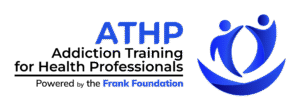On September 25 of this year, the 4th UN High-Level Meeting on Noncommunicable Diseases, Mental Health and Their Risk Factors will take place in New York City. The outcome is a Political Declaration—a critical document that guides all UN Member States on why and how to address this pressing issue, which impacts both public health and national economies worldwide.
The process of developing the Political Declaration is led by Member States, but consultations are also held with other stakeholders. A first draft has already been prepared, and a second draft is currently being circulated among States. Civil society advocates, who support stronger control of NCDs and their risk factors, are alarmed by the progressive weakening of this document—a development that has already raised significant concerns among public health organizations.
In this article, I will primarily focus on the interventions proposed to control alcohol consumption. This analysis is based on a document from the organization Movendi International [Movendi Analysis: First Revised Version of Political Declaration Text – Movendi International], which leads the advocacy for regulations to control alcohol consumption globally.
According to Movendi International’s analysis (2025), the document not only fails to prioritize alcohol-related harm but also maintains misleading language, omits urgent WHO-recommended measures, and perpetuates the problematic notion of “tobacco exceptionalism.” But what does this really mean for global health policy?

Alcohol: The Missing Priority in the Global NCD Response
Movendi highlights that, compared to the Zero Draft, the Rev. 1 version represents a significant step backward in addressing alcohol harm. The repeated use of the vague and outdated term “harmful use of alcohol” ignores growing scientific consensus that no level of alcohol consumption is safe—especially in relation to cancer (GBD 2018 Alcohol Collaborators, 2018; IARC, 2012). This kind of framing weakens public health messaging and obscures the inherent risks of alcohol use.
Moreover, while tobacco is addressed across multiple paragraphs with clear targets and enforcement mechanisms, alcohol receives only a single, vague mention (OP 43f). This asymmetry is not supported by the evidence and undermines efforts to address commercial determinants of health equitably.
Where is the SAFER Package?
The Rev. 1 declaration ignores the WHO’s SAFER technical package—an evidence-based set of interventions including taxation, advertising restrictions, and brief interventions in primary care. These “Quick Buys” are low-cost, high-impact strategies that have been proven to reduce alcohol consumption at the population level, especially in low-resource settings (WHO, 2018; O’Donnell et al., 2014).
Failing to include these cost-effective tools represents a missed opportunity to promote equitable and sustainable health financing.
Industry Interference: The Elephant in the Room
While the document includes safeguards against tobacco industry interference, it remains silent on the alcohol industry’s role in policy-making. This omission is alarming given the well-documented tactics of the alcohol lobby to delay, weaken, or obstruct public health measures (WHO, 2021). Unlike the tobacco industry—explicitly excluded through Article 5.3 of the WHO FCTC—the alcohol industry is not subject to the same level of exclusion from health policy-making.

Alcohol Taxation: The Quadruple Win
The document’s inclusion of a target for 80% of countries to adopt health-promoting alcohol excise taxes by 2030 is a positive step. However, taxation is more than just a revenue tool—it yields a “quadruple win”: it reduces harm, generates income, supports public services (like health and education), and promotes health equity (Movendi, 2025; Chikritzhs et al., 2020).
Alcohol and Social Justice
Alcohol-related harm disproportionately affects low-income and marginalized communities. Population-wide policies such as taxation and availability restrictions are highly effective and pro-equity, offering the greatest health gains to those most vulnerable (The Lancet Public Health, 2020).
Conclusion: An Urgent Call to Correct Course
The HLM4 political declaration can and must be improved. Policymakers should:
- Replace the term “harmful use of alcohol” with “alcohol consumption.”
- Fully integrate the Quick Buys and SAFER package into global NCD targets.
- Establish measurable alcohol use reduction goals, as is done with tobacco.
- Exclude alcohol industry actors from any role in health policy-making.
Globally, alcohol is the leading risk factor for death and disease among individuals aged 15 to 49. Ignoring this reality in such a high-level policy document is, at best, negligent. At worst, it preserves a status quo shaped by commercial interests rather than public health imperatives.
References:
- GBD 2018 Alcohol Collaborators. (2018). Alcohol use and burden for 195 countries and territories, 1990–2016: A systematic analysis for the Global Burden of Disease Study 2016. The Lancet, 392(10152), 1015–1035. https://doi.org/10.1016/S0140-6736(18)31310-2
- International Agency for Research on Cancer. (2012). IARC Monographs on the Evaluation of Carcinogenic Risks to Humans. Volume 100E: Personal Habits and Indoor Combustions. World Health Organization.
- Movendi International. (2024, July 8). Analysis: First Revised Version of Political Declaration Text. https://movendi.ngo
- O’Donnell, A., Anderson, P., Jané-Llopis, E., Manthey, J., Kaner, E., & Rehm, J. (2014). Immediate impact of minimum unit pricing on alcohol purchases in Scotland: Controlled interrupted time series analysis for 2015–2020. Addiction, 109(4), 693–702. https://doi.org/10.1111/add.12330
- World Health Organization. (2018). SAFER: A World Free from Alcohol-Related Harm. https://www.who.int/publications/i/item/safer
- World Health Organization. (2021). Global status report on alcohol and health 2021. https://www.who.int/publications/i/item/9789240029373
- Chikritzhs, T., Livingston, M., & Room, R. (2020). Public health advocacy and the alcohol industry in Australia: A review of the evidence. Drug and Alcohol Review, 39(4), 288–295. https://doi.org/10.1111/dar.13037
- The Lancet Public Health. (2020). Failing to address the burden of alcohol. The Lancet Public Health, 5(6), e297. https://doi.org/10.1016/S2468-2667(20)30123-7
